Energy Management in Marine Engineering: We understand and can model your marine engineering platform for identifying the deficiences for energy management for your cost saving.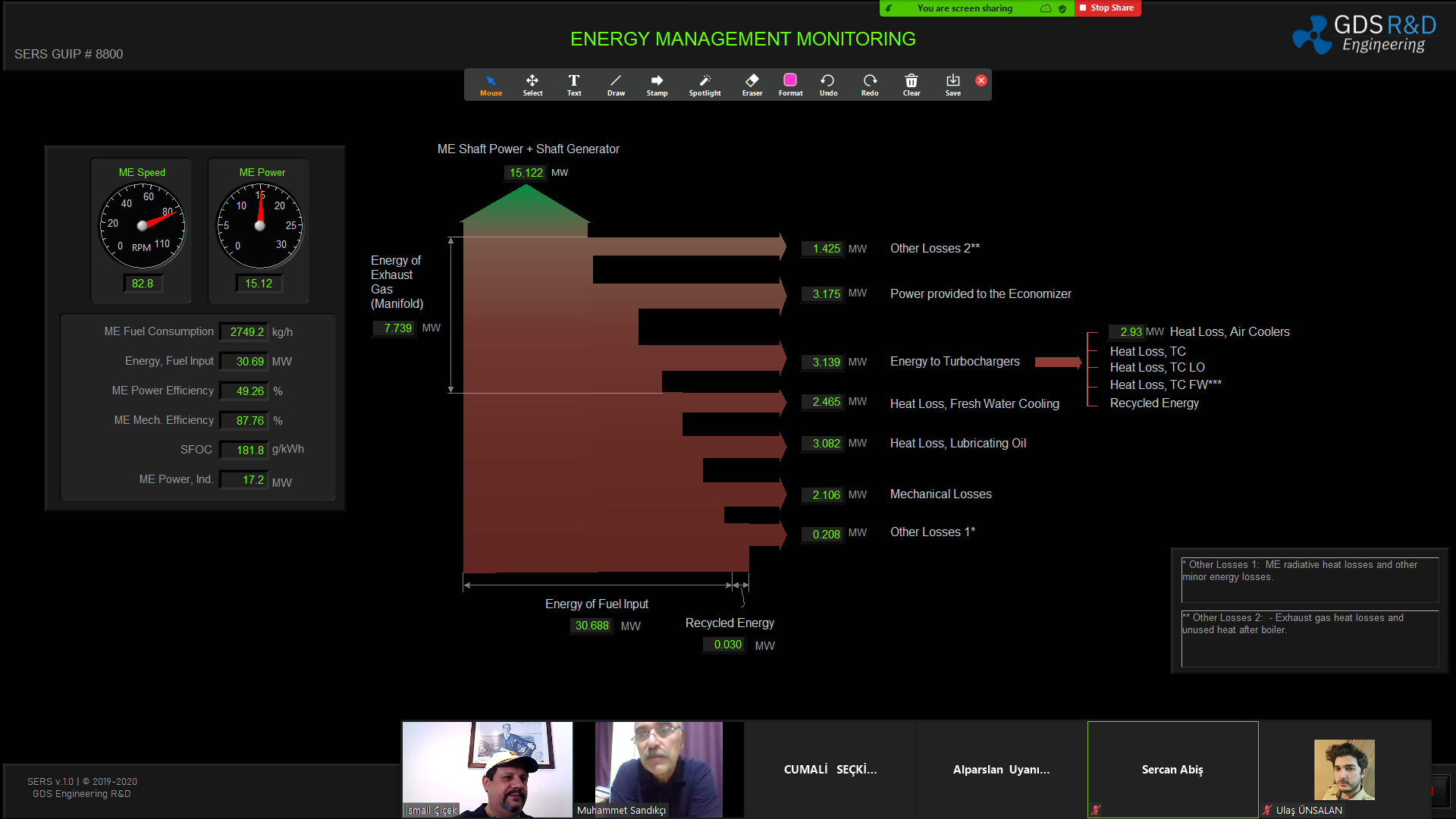

With our product, certified by the Nippon Kaiji Kyokai (Class NK) as a Class A (Full Mission) Engine Room Simulator, our purpose is to ensure that the instructors can efficiently utilize this training environment in their Maritime Education and Training (MET) programs and that the trainees can have a productive training.
Developed by GDS Engineering R&D; our product called Ship Engine Room Simulator (SERS);
For more information, clisk here to read the details of the GDS ERS in our ERS product page. https://www.globaldynamicsystems.com/
or watch our YOUTUBE CHANNEL for more information with some example videos.
The vision of GDS started earlier than 2014. Our personnel has been providing engineering services in various defense programs and projects and educational services since 1997. GDS was first estblised in San Antonio, Texas in 2008, the headquarters was then moved to Istanbul, Turkey in 2014.
Established by Dr Ismail Cicek, GDS now provides engineering services and products to the industry with a small team of engineers and managers of seven (7), academic consultants or part time subject matter experts (SMEs) of more than 10, and part-time associated students of five (5).
We provide international educational services, test support, or deliver products in various locations in the world, including the main office located in Istanbul, Turkey.
Our main product is Engine Room Simulator (ERS). All of our products are listed in summary here.
Our main services are training and consultancy services on environmental qualification test standards, such as MIL-STD-810H and RTCA-DO-160G.
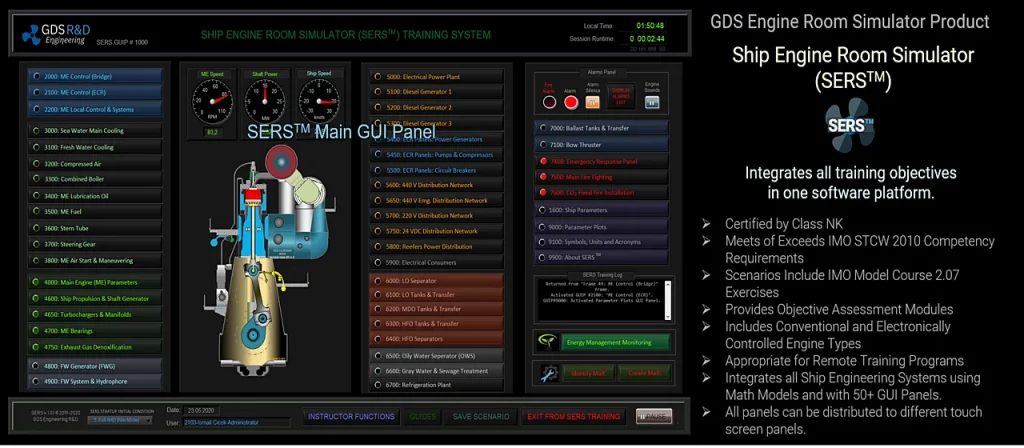
We develop and provide engine room simulator to the maritime schools, institutions, and companies. Our modern and effective Engine Room Simulator (ERS), certified by ClassNK in 2020, is already in use by many institutions around the world. Click here to read more about the GDS simulator products. Our simulator development story involves the collaborations with universities, industrial firms and governmental or non-governmental organizations.
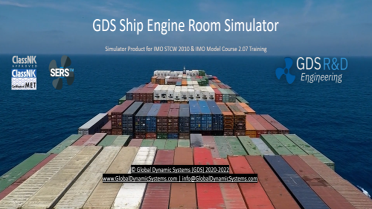
SERSTM is a certified, advanced, and Full Mission engine room simulator that can be used in both laboratory and distributed team environment training.
Click to read more about SERSTM.
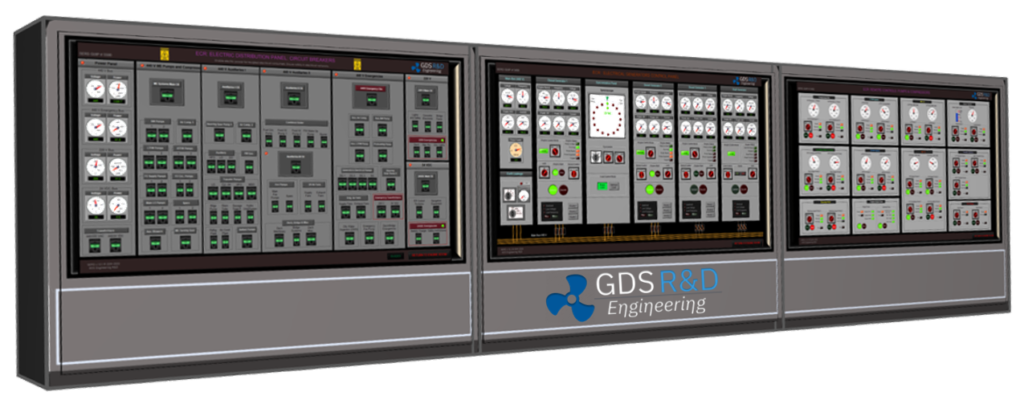
SESSTM is a software simulation of all electrical systems in a typical engine room. It can be used as a laboratory software or in-class demonstration software.
Click to read more about SESSTM.
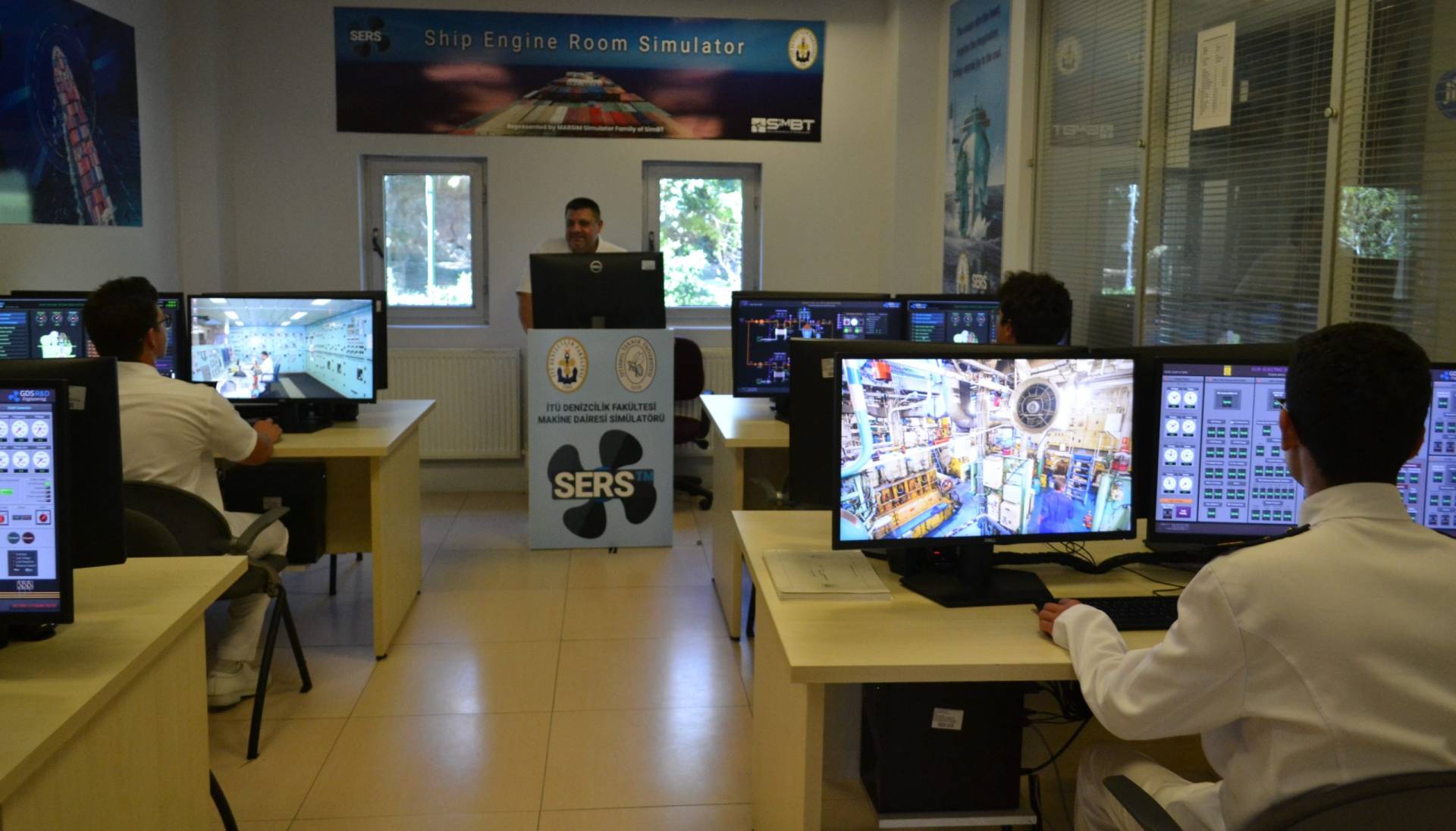
HVTSTM is a software, which can be used in the training of high voltage operations onboard a ship, such as Vacuum Circuit Breaker, Transformer, and high power loading to the main bus.
Click to read more about HVTSTM.
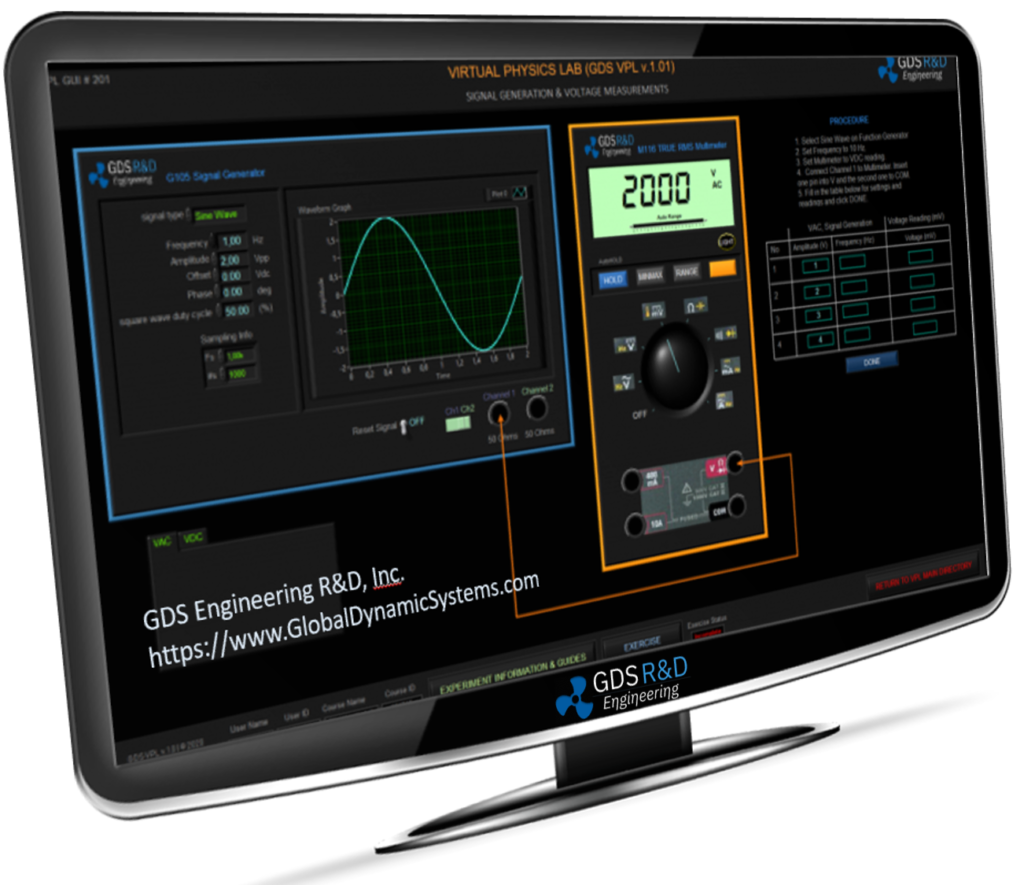
VPLTM is software, which supports the laboratory sessions of Physics I and and II experiements, which are mechanical and electrical experiments, respectively.
Click to read more about VPLTM sotware.
With years of experience in developing defence and aviations systems and environmental test experience, GDS provides training on defense, aviation, and industry test standards. Click here to read more about the details of the systems engineering and test training subjects.
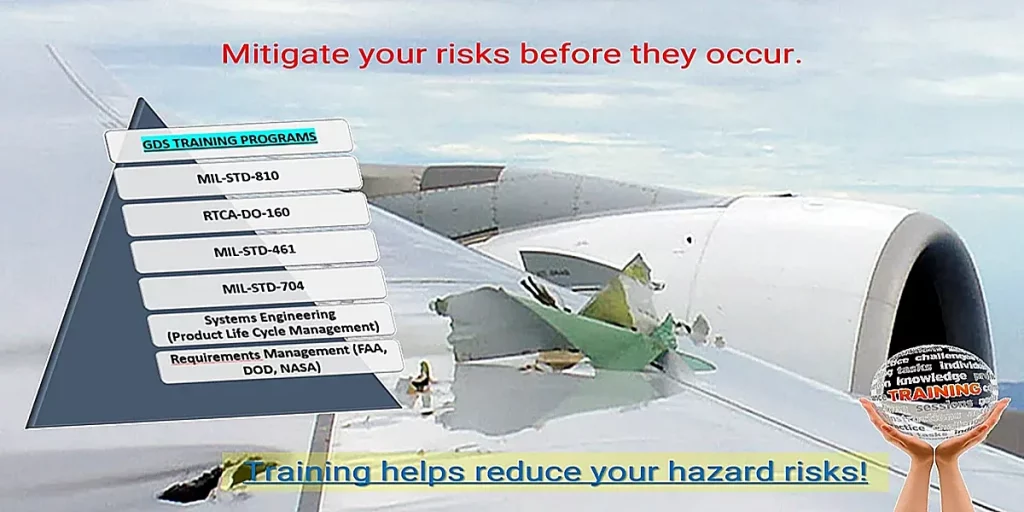
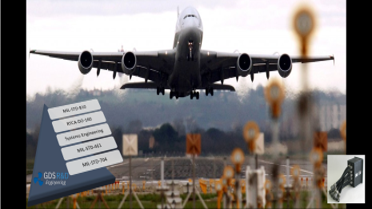
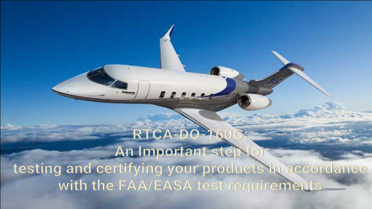
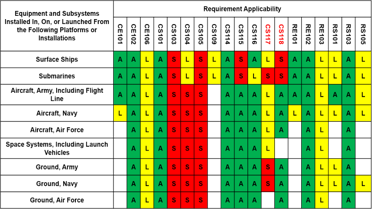
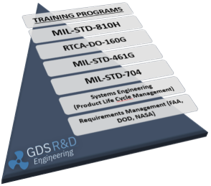
We also provide environmental testing services including the testing of your products to MIL-STD-810H, RTCA-DO-160G, and other military and industry standards. Some of which are vibrations, mechanical shock, low/high temperature, humidity, corrosion (salt spray, salt fog), and drop. We can help reduce your final issues in your product development through experience sharing, testing, or analysis.
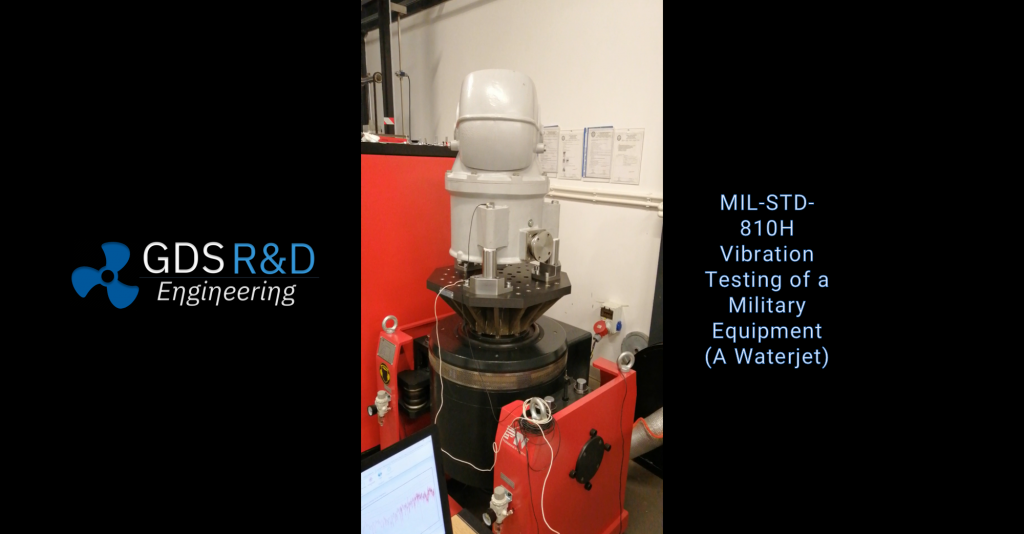
We aim to support your business goals in the advancement of the human prosperity and healthy living.
GDS TEAM
We also prodive support to the industrial organisations in their product development or research projects by means of training, consultacies or services.
Our capabilities in desing and engineering solution projects, are, in summary:
GDS Engineering has the infrastructure, knowledge, personnel, and infrastructure and has participated in or led international projects. GDS has its own Project Management System (GDS-PMS) and Quality Management System (GDS-QMS) that help produce various tools and templates for use in project or quality management, including risk-based management methods.
Our firm, consisting of in your project and company goals.
We utilize engineering software and tools depending on the Project requirements, when needed, for example: -3D CAD and CAM packages: AutoCAD, SolidWorks, Autodesk Inventor -Engineering Analysis and Optimization: ANSYS Fluent and ANSYS Packages, Autodesk Inventor -System Simulation: CATIA -GT-Power Engine Analysis and Simulation Software – SIL and HIL Simulations -LSTC LS Dyna -National Instruments LabVIEW, LabVIEW RT and NI DAQ/Control Hardware -Matlab, C/C++, and other software when needed.
We also develop our own engineering modeling and analysis programs. For example, we have our mathematical models developed for the analysis and simulation of diesel engines. This module helps testing of diesel engines and comparing the results against the simulated baseline system.
Energy Management in Marine Engineering: We understand and can model your marine engineering platform for identifying the deficiences for energy management for your cost saving.
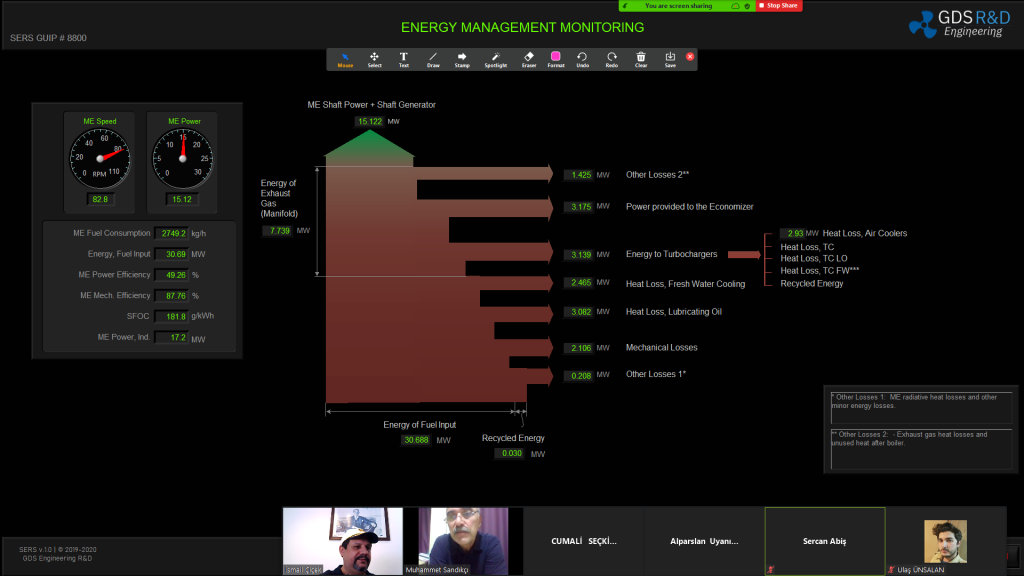
Dr İsmail Çiçek 1990 yılında İstanbul Teknik Üniversitesi (İTÜ) Gemi Makineleri İşletme Mühendisliği Bölümünden mezun oldu. Akademik dünya ve endüstrinin değişik alanlarındaki çalışmalarıyla geniş tecrübe sahibi olan İsmail Çiçek, Texas Tech Üniversitesi Makine Mühendisliği Bölümünden 1995’de Yüksek Lisans 1999’da doktora diplomalarını aldı. Dr Çiçek yüksek lisans çalışmasında dizayn ve kontrol sistemleri, doktora çalışmasında ise mekanik titreşimler ve kontrol sistemleri konularında çalışmalar yaptı.
Dr İsmail Çiçek 1999-2003 yılları arasında İTÜ Denizcilik Fakültesi Gemi Makineleri İşletme Mühendisliği Bölümünde Öğretim Üyesi ve Bölüm Başkan Yardımcısı olarak görev yaptı. Bu süre içerisinde Dr Çiçek İTÜ Simülatör Merkezinin kurulması, International Association of Maritime Universities (IAMU) birliğinin oluşturulması, ve The State University of New York (SUNY) ile İTÜ Denizcilik Fakültesi arasında çift diplomalı lisans programının gerçekleştirilmesi çalışmalarında bulundu.
1997 yılından günümüze Dr. İsmail Çiçek ABD savunma sektöründe proje yapan şirketlerde ve ABD Hava Kuvvetleri Komutanlığı bünyesinde değişik program ve projelerde uzun yıllar (toplam 15 yıl) mühendis ve lider olarak çalışmalar yürüttü. Dr. Çiçek’in savunma sanayi deneyimi Coğrafi Bilgi Sistemlerini kullanan İnsansız Hava Aracı ve Sistemleri geliştirilmesi ve US Marine Corps’a teslimi, sabit kanat uçakların modernizasyonu (C-5, C-17, C-130 E/H/J, vb), askeri cihazlarının uçak, hava ve deniz araçlarında kullanılabilmesi için ortama uyumluluk testleri, insansız hava araçları için dizel motor geliştirilmesi ve uygulanması gibi önemli çalışmaları içermektedir.
Dr Çiçek, Raytheon ve Texas Tech Üniversitesi işbirliği ile hazırlanan Sistem Mühendisliği doktora programında Entegre Ürün Verifikasyon ve Validasyon dersini verdi. Titiz, enerjik ve mükemmel takım çalışması göstergeleri dolayısıyla İsmail Çiçek’e; Terra Health tarafından, 2009 yılında Mükemmel Mühendislik ve 2010 yılında Müşteriye Hizmette Üstünlük ödülleri, ABD Hava Kuvvetleri Komutanlığı’nca çok sayıda ödül ve teşekkür mektupları takdim edildi.
Bir çok bilimsel ve mühendislik yayınları olan ve uluslararası konferans etkinlikleri bulunan Dr. İsmail Çiçek halen ASTM, ASME, IEEE ve ISO gibi uluslararası profesyonel kuruluşlarda aktif üye olup, askeri ve sivil standartlar geliştiren komitelerde çalışmalar yapmaktadır. Dr. Çiçek’in uluslararası sivil ve askeri standartlar konusunda uygulamalı tecrübeleri bulunmaktadır.
Dr. İsmail Cicek, 2012 yılından itibaren İTÜ Denizcilik Fakültesi’nde Öğretim Üyesi olarak görev yapmakta, Otomatik Kontrol Sistemleri, Gemi Makine Dairesi Simülatörleri, Gemi Kontrol Sistemleri, Mekanik Titreşimler ve benzeri dersler vermektedir. Dr. İsmail Çiçek Üniversite-Sanayi işbirliklerine önem vermektedir, bu sebeple de IMSO, TÜLOMSAŞ, MILPER, FEMSAN, ve benzeri kurum ve kuruluşlar ile birlikte çalışmalar da yapmıştır.